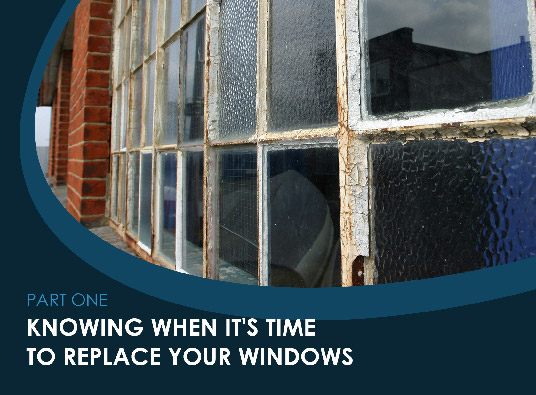

The first step in replacing your windows is confirming that, indeed, your home does have a need for new windows. While there’s a lot that has been said about replacing your windows to suit your sense of aesthetics, for most people, window replacement is a matter of pragmatism, i.e., when the windows no longer work, then it’s time to swap them out for ones that do. Here are things to watch out for:
Drafts coming from or around the window – some might consider replacing a window to help regulate their homes’ temperature. Your window is, after all, part of the seal that keeps your home’s indoors separate from the environment outside . It doesn’t do to ignore drafty windows – window problems have a way of getting bigger if left alone. If you’re feeling the wind blowing around your window, or the glass is abnormally cool or warm to the touch, you should probably replace the window.
Difficulty opening and closing the window – if the main concern about your home’s windows is a matter of functionality, then being able to open and close your windows without undue effort should be a consideration. If you’re having problems manipulating the window sash within the frame, how can you expect the window to fulfill its role as a means to control the air flow and ventilation within the room?
High energy costs – if you’re spending more on heating and cooling than you think you should, then odds are your windows are no longer performing their function properly. Alternately, you could also be hearing more noise coming in from the outside than usual. If your windows are letting in more sound, then chances are they’re letting other stuff in, too.
Physical damage, signs of aging and/or rotting – there comes a point when the only thing you can do about the damage to a window is to replace it. If the window is visibly damaged, or shows clear signs of deterioration, especially if it could pose a danger to people, then it should be replaced.
Windows today are performance machines; long gone are the days when they were just holes in the wall for letting light and air through. They still do that, of course, but they’re also so much more. The different options you decide to include in your windows will affect not only how they perform, but how they look as well.
The material you choose for your window frames is one of the biggest determinants of how they will function. Wood, for example, is sturdy and provides great insulation against both heat and cold, but it is expensive, and requires a lot of regular maintenance. Vinyl is inexpensive and doesn’t require maintenance the way wood does, but can be damaged by exposure to extremes of weather. Aluminum is light, durable, and affordable, but is a poor insulator. Composite materials make for a great compromise solution, combining durability with a low maintenance requirement, and is the only other material, aside from wood, that can be painted.
The glass options you buy for your windows determine the rest of your windows’ functionality. Double pane window sashes are industry standard; the insulating value of the glass can be increased by adding an inert gas fill between the panes. Options such as tinting, glass coatings, and special glass treatments will affect not only the insulating value of the glass, but its ability to let in both light and heat as well.
The window style you choose for your new windows will not only determine function, but aesthetics as well. With all the available styles and looks for windows, the best place to look for ideas is online: many websites dedicated to remodeling and fixing up your home will have ideas to help you. Product catalogs, both online and otherwise, are a good place to look for ideas and options, too. You can also take a trip out to specialty or hardware stores to see what’s available. All of this combined can help you decide what style of window to install in your home.
By now you’re probably brimming with ideas for your new windows. Before you go ahead and start anything, you might want to consult with window installation professionals. Their advice and know-how are valuable resources that many people overlook during the window replacement process.
It’s been said that, for all the theorizing in the world you can do beforehand, nothing beats just sitting down and doing it. While this is a rather simplistic approach to certain things, the fact is that few can offer insights into your situation as someone who’s been there, done that, and done it again, over and over, as part of their everyday job.
Will it work? – This is one of the things a window professional can help you with. Whether it’s a simple case of whether or not that new window will work well with your existing home, or as feedback on that daring new look you’re thinking of giving your home, a window professional can advise you. You can ask whether or not the changes you’re making are structurally sound, and how changing up the window might affect other things in your home, too.
Can this be fixed? – Just because they primarily install windows doesn’t mean that they don’t have anything to say about the state of your home. The insights they might have as to your situation, as well as what options you have for fixing it, can make a tremendous difference in the long term.
How much will it cost? – Whether or not you can afford something is often a big determinant in whether or not it can or should be attempted. A healthy dose of practical reality can make or break a remodeling project. Rather than waste time his time or yours on a project that will never see the light of day, getting a professional to help you budget your repair is one of the best ways to see the project through to the end.